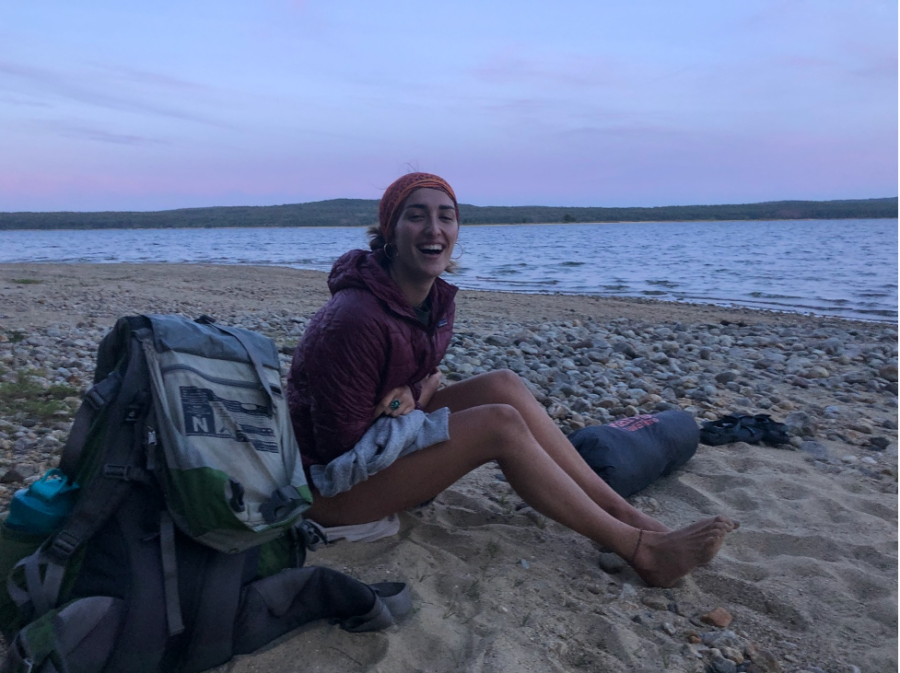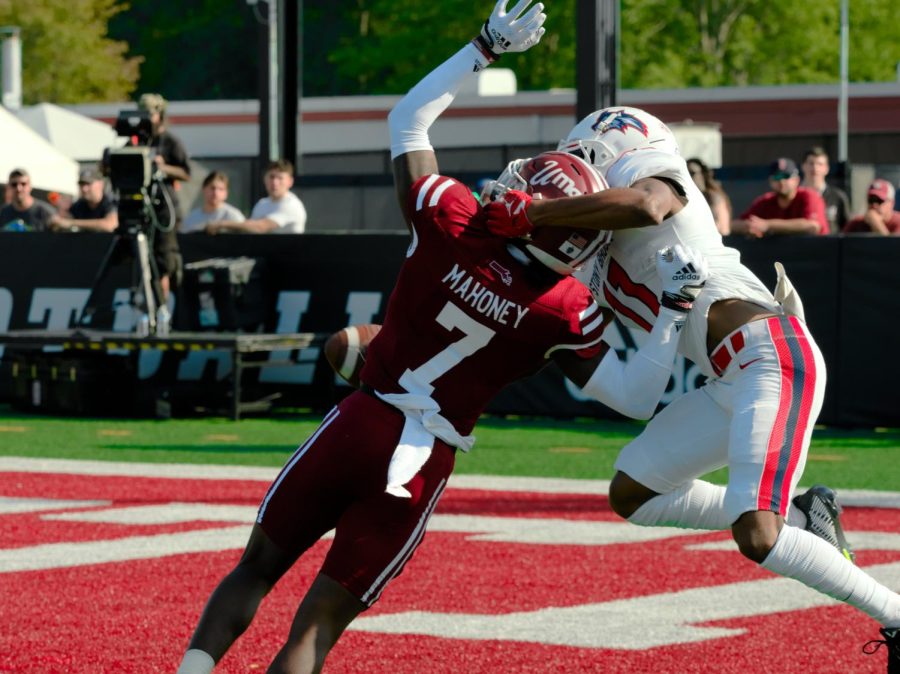While people across the country grappled with isolation and distance from family, one student leaned into her role as a nurse in an incredibly personal way. Over the summer, Maddi Terry, a senior nursing student at the University of Massachusetts, decided to work as a personal care assistant for a 90-year-old stranger on an island in Maine.
“I was basically like an incredibly encompassing secretary for someone I never met, in a really random place, doing really random stuff. He was a huge sailor, so I learned to sail, I’ve never sailed in my life,” Terry explained.
The man she worked for needed a caregiver full time because of the pandemic, who could live with him for a couple months and help with his daily tasks. Terry noted that, while many of her friends were leaving on or off campus housing and moving back home, she completely switched her entire environment and social circle, making for a summer experience vastly different from many of her peers.
“It was very challenging. I felt really lonely, being socially isolated is hard enough, and then being socially isolated on an island . . . we had to quarantine the whole time. Despite the really frustrating moments, it was beautiful.”
After her job term ended, she had three days at home before coming back to the Amherst area, where her social circle reverted to the life of a college student, albeit, a college student still under restrictions from the pandemic. She described the transition as a “respite,” where she got to enjoy again the “simpler joys of being at college,” such as decorating her new room, spending time with new friends or enjoying different food.
“Coming from that to here was really odd,” she reflected in October, as her semester was fully underway. “I went from two months of one-on-one time with someone I’d never met to moving in with four girls who I’ve now spent all my time with.”
In that new space she found time to reconnect with friends, which she noted was one of the most rewarding parts of her semester. She said that extra time she has had throughout the remote semester gave her time to explore literature related to the ongoing Black Lives Matter protests, invest in friendships, and herself. The biggest positive she listed from this period of time for her was the deepening of relationships, where instead of “a 30-minute lunch date, or one hour lunch date, or even a Friday night party . . . now it’s come over and stay for nine hours, because we both know the other one doesn’t have any place to be.”
“In an everyday college experience, I start my day at 6:00 a.m. I go to bed at 11:30 p.m. and its endless back-to-back stuff and I don’t have the time to sit down and read or sit down. Right now, we have the newspaper coming to our house and I take at least 30 minutes a day to just skim it or I’m knitting, I mean, even the stupid stuff like I’m learning to do knitting for, like the sixth time in my life. I make my bed now. All these little things that I don’t really prioritize when the world is quote-unquote ‘normal.’”
However, as with many other nursing students, Terry’s “respite” time was coupled with a lot of hands-on work. Throughout the semester, she worked at the Mullins testing site, conducted clinical hours for her major at hospitals and worked at an assisted living facility for memory impaired patients. Every week her schedule would vary, but she could usually be found at Mullins assisting with UMass’s efforts to test students and the community for COVID-19. The Mullins site testing facilities she described as removed and not conducive to learning.
“It’s like you’re providing a service, you give the service and the person leaves, there’s no connection or anything,” Terry said. “I think that’s been the strangest part, even people I know really well when I see them there, it’s really awkward because you’re behind a mask, sometimes goggles and a mask, and then plastic, and then their mask, and then your distance. So, it’s a very surreal environment, incredibly boring. And not very much learning exists there, unfortunately.”
Terry felt firsthand the responsibility she had to another person during COVID-19 while living on the island in Maine, and she felt that same pressure again working at the assisted living facility. While the work is less involved than her summer position — at the assisted living facility, patients live in their own apartments, and Terry’s task is to remind people about medications or assist with smaller tasks — there is still a huge sense of responsibility.
“It’s stressful,” she said, when asked to describe the experience of working with vulnerable populations during COVID-19. “If I’m in this assisted living place, and I have it, or if they have it, there’s really no room for error there. And that’s been the most impactful. I just feel like there’s, I don’t feel like there’s a burden, but there’s a huge responsibility. And then also, everyone’s really lonely. So, to see all these old people living alone, even among the community, they have to stay in their rooms, for the most part. It’s just really sad.”
Reflecting on her senior year in December, Terry said that the out-of-school activities that many college students are missing now, like clubs and extracurricular activities, are essential to preparing for one’s future. As she reached the end of her fall semester, she felt unprepared for the impending graduation, as more and more her education felt reduced to “online transmission.”
“I’ve waited my whole life, to be an adult, you know, you play adult, as kids, you play dress up, you do all these games. And I think graduating college for a lot of us is kind of the signifier that you’re entering the adult world. Unfortunately, a lot of people have to make that transition a lot sooner, but for me it just feels like the transition from chill college to go finance yourself and be a functional, in my case, nurse is this weird, anticlimactic, one dimensional transition,” she explained.
At Thanksgiving break, Terry returned to Maine and spent time with her former housemate, seeing how he was coping with the pandemic and catching up on one another’s lives. She said that what’s resonating with her from that summer job is the emotional aspect of COVID-19, where similar to her patients at the assisted living facility, he had little company or maneuverability.
“Nurses, a lot of times talk about how, at least in nursing school about how nurses are nurses, they’re teachers, they’re advocates, they’re people’s mom, sisters, wives in that situation. They are husbands, partners, whatever, they are kind of a replacement person, for a lot of people in their biggest time of stress or happiness, or whatever the event is. And during COVID everyone has so much less interaction with everyone in their daily life. I felt like with him, I was a partner in a lot of ways in life and educating him and advocating for him.”
Terry said that one of the long-term impacts of the work she has been doing is what she’s taken away about healthcare after working with essential workers. She said the majority of people she worked with “work many jobs or are supporting many, many, many people, or are marginalized communities in a variety of ways: refugees, people of color, not English speaking.” Seeing the disparate impacts of COVID-19 on workers has instilled in her a strong drive for equity in healthcare that she will take with her in a future career. When asked what she wants people to know about this time, she said “how capable and incapable human beings are.”
“If this is looked at in like 100 years, not talking to people right now … it is so excruciatingly hard to self-isolate and to physically isolate. And the fact that so many millions and millions of people have had to do that, to me is absolutely astounding. Because it’s so against our nature, even the most isolated people need interaction … And I think that the thing that’s so hard about this is, it’s physically painful.”
As the pandemic slowly changes course in the U.S. with the rollout of vaccines, Terry is returning to Maine to continue the position she started last summer and work for the same man she lived with while the pandemic was raging across the country. Having just graduated, she will use this position as “a steppingstone into the real world” while taking time to look for new opportunities and creating a future she is excited for.
Claire Healy can be reached at [email protected].



















